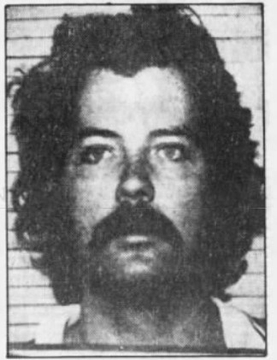Related Research Articles
Innocence Project, Inc. is a 501(c)(3) nonprofit legal organization that is committed to exonerating individuals who have been wrongly convicted, through the use of DNA testing and working to reform the criminal justice system to prevent future injustice. The group cites various studies estimating that in the United States between 2.3% and 10% of all prisoners are innocent. The Innocence Project was founded in 1992 by Barry Scheck and Peter Neufeld who gained national attention in the mid-1990s as part of the "Dream Team" of lawyers who formed part of the defense in the O. J. Simpson murder case.

In the United States, capital punishment is a legal penalty throughout the country at the federal level, in 27 states, and in American Samoa. It is also a legal penalty for some military offenses. Capital punishment has been abolished in 23 states and in the federal capital, Washington, D.C. Capital punishment is, in practice, only applied for aggravated murder. Although it is a legal penalty in 27 states, only 20 states have the ability to execute death sentences, with the other seven, as well as the federal government, being subject to different types of moratoriums. The existence of capital punishment in the United States can be traced to early colonial Virginia. Along with Japan, South Korea, Taiwan, and Singapore, the United States is one of five advanced democracies and the only Western nation that applies the death penalty regularly. It is one of 54 countries worldwide applying it, and was the first to develop lethal injection as a method of execution, which has since been adopted by five other countries. The Philippines has since abolished executions, and Guatemala has done so for civil offenses, leaving the United States as one of four countries to still use this method. It is common practice for the condemned to be administered sedatives prior to execution, regardless of the method used.

Cameron Todd Willingham was an American man who was convicted and executed for the murder of his three young children by arson at the family home in Corsicana, Texas, on December 23, 1991. Since Willingham's 2004 execution, significant controversy has arisen over the legitimacy of the guilty verdict and the interpretation of the evidence that was used to convict him of arson and murder.
Randall Dale Adams was an American man wrongfully convicted of murder and sentenced to death after the 1976 shooting of Dallas police officer Robert W. Wood. His conviction was overturned in 1989.

Capital punishment is a legal penalty in the U.S. state of Texas for murder, and participation in a felony resulting in death if committed by an individual who has attained or is over the age of 18.
Anthony Porter was a Chicago resident known for having been exonerated in 1999 of the murder in 1982 of two teenagers on the South Side of the city. He was convicted and sentenced to death in 1983, and served 17 years on death row. He was exonerated following introduction of new evidence by Northwestern University professors and students from the Medill School of Journalism as part of their investigation for the school's Innocence Project. Porter's appeals had been repeatedly rejected, including by the US Supreme Court, and he was once 50 hours away from execution.
Texas Moratorium Network (TMN) is a grassroots non-profit organization with the primary goal of mobilizing statewide support for a moratorium on executions in Texas. It has about 20,000 members, about 85 percent of whom reside in Texas.
Wrongful execution is a miscarriage of justice occurring when an innocent person is put to death by capital punishment. Cases of wrongful execution are cited as an argument by opponents of capital punishment, while proponents say that the argument of innocence concerns the credibility of the justice system as a whole and does not solely undermine the use of the death penalty.
This is a list of notable overturned convictions in the United States.
Joseph M. Giarratano is a former prisoner who served in Deerfield Correctional Center, in Southampton County, Virginia. On November 21, 2017, he was granted parole. He was convicted based on circumstantial evidence and his own confessions, of murdering Toni Kline and raping and strangling her 15-year-old daughter Michelle on February 4, 1979, in Norfolk, Virginia. He has said that he was an addict for years and had blacked out on alcohol and drugs, waking to find the bodies. He was sentenced to death and incarcerated on death row for 12 years at the former Virginia State Penitentiary.
Iwao Hakamada is a Japanese former professional boxer who was sentenced to death on September 11, 1968, for a 1966 mass murder that became known as the Hakamada Incident. On March 10, 2011, Guinness World Records certified Hakamada as the world’s longest-held death row inmate. In March 2014, he was granted a retrial and an immediate release when the Shizuoka district court found there was reason to believe evidence against him had been falsified.
Earl Washington Jr. is a former Virginia death-row inmate, who was fully exonerated of murder charges against him in 2000. He had been wrongfully convicted and sentenced to death in 1984 for the 1982 rape and murder of Rebecca Lyn Williams in Culpeper, Virginia. Washington has an IQ estimated at 69, which classifies him as intellectually disabled. He was coerced into confessing to the crime when arrested on an unrelated charge a year later. He narrowly escaped being executed in 1985 and 1994.

The Confession is a 2010 legal thriller novel by John Grisham, his second novel to be published in 2010. The novel is about the murder of a high school cheerleader and how an innocent man was arrested for it. This was Grisham's first novel to be released simultaneously in digital and hardcopy format.
Gerald "Jerry" Hurst was an American chemist and fire investigator. Before becoming noted for arson investigations, Hurst designed explosives for warfare, invented a binary explosive device known as Kinepak and developed an improved chemical compound to create Liquid Paper. He also devised an explosive called Astrolite as well as the Mylar balloon.
A jailhouse confession is a confession to a crime given by a prisoner to another inmate while in custody. Legal regimes have developed with respect to the use of jailhouse confessions in the prosecution of crimes.

Anthony Charles Graves is the 138th exonerated death row inmate in America. With no record of violence, he was arrested at 26 years old, wrongfully convicted, and incarcerated for 18 years before finally being exonerated and released. He was awarded $1.4 million for the time he spent imprisoned, and the prosecutor who put him in prison was ultimately disbarred for concealing exculpatory evidence and using false testimony in the case.

David Martin Long was an American murderer executed by lethal injection in Texas for the stabbing deaths of three women, and later confessed his involvement in seven murders. His case received media attention after he was placed on life support for a drug overdose two days before his scheduled execution. The New York Times said that the medical personnel who treated Long "found themselves in the odd situation of trying to restore to good health a man with only two days left to live."
Henry Lee McCollum and Leon Brown are two African American men who were wrongfully convicted and sentenced to death for a murder they did not commit.
References
- White, Welsh S. (2009). Litigating in the Shadow of Death: Defense Attorneys in Capital Cases. University of Michigan Press. ISBN 978-0472021598.